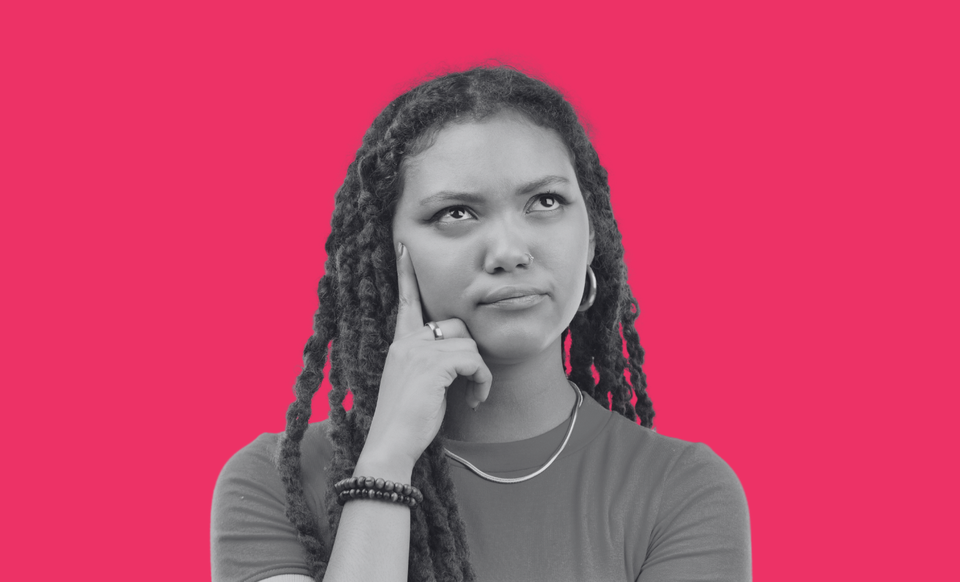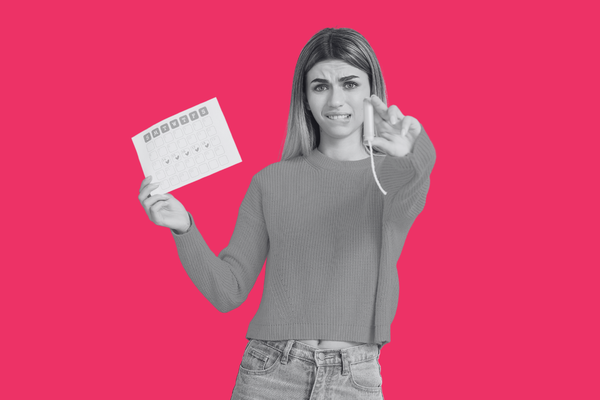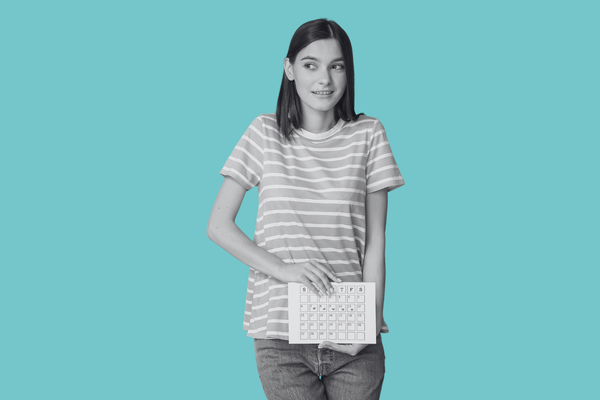
9 PMDD mythbusters
Do you know fact from fiction when it comes to premenstrual dysphoric disorder (PMDD)?

You may have heard stories about periods that do not sound quite true. But how can you tell for sure? Here we break down some of the most common period myths that may have been stressing you. Plus, you can check out our advice on finding information you can trust.
Myth: Bad pain is just a normal part of periods.
Fact: While some pain is common during your period, severe pain could be a sign of a medical condition like endometriosis or adenomyosis. Talk to an adult or your doctor if period pain is making it hard to do your usual activities, there are lots of treatment options available.
Myth: Changing period products very often is normal because of heavy bleeding.
Fact: If bleeding is so heavy that you have to change your period product every hour or two, see a doctor. This is unusually heavy bleeding and can be sign of a health issue. Your doctor will be able to check you out and give you treatment if needed.
Myth: You can’t escape having a period every month.
Fact: If you’re having period problems, or you want to skip your period for a holiday or other special occasion, you may be able to get hormonal treatment, usually the contraceptive pill or a hormonal coil to delay or stop your periods. Your doctor can talk to you about your options.
Myth: It's not safe to exercise while on your period.
Fact: Exercise can actually help with period pain, feeling low and other symptoms. It helps boost blood flow and endorphins, the happy hormones. Even just a walk out in the fresh air can help.
Myth: It’s dirty to swim while you’re on.
Fact: Period products like tampons, menstrual cups or period swimwear will stop any leaks while swimming. Just make sure you get the right product for you and change your product before and after swimming.
Myth: If you have sex on your period you will not get pregnant.
Fact: You can definitely get pregnant on your period if you have unprotected sex! Always use contraception if you don’ t want a baby. Condoms are best because they protect against sexually transmitted infections, too.
Myth: Animals can smell your period blood from miles away and will attack you.
Fact: There is no evidence at all that sharks, bears and other animals are attracted to period blood. It's completely safe to carry on swimming in the sea or camping while on your period.
Myth: Inserting tampons or menstrual cups affects virginity.
Fact: Virginity means not having had penetrative sex and is unrelated to using period products. So, carry on using tampons or menstrual cups if they’re the best period product for you.
Myth: If you don’t start your periods until you’re older, it means you're immature.
Fact: Starting your period later than your friends does not mean you're immature, it’s normal for people to start them at different times. You might be years earlier or later than your friends. When you start your periods depends on things like genetics, weight and your hormones. Having said that, if you haven’t started your periods by the time you’re 16, see your doctor. This is just so they can make sure nothing else is going on.
Myth: You’re dirty and unclean when you’re on.
Fact: Period blood is not dirty—it's just blood mixed with tissue from the lining of your womb. Vaginas are also self-cleaning, so there’s no need to wash the inside of your vagina during your period or at any other time. It's perfectly healthy to wash your vulva (the outside of your vagina) with clean water, though. Your period does not make you dirty.
Myth: Everyone can tell when you're on your period.
Fact: There's no magical signal to say when someone is on their period. Periods are personal, and people will not know you're on your period unless you tell them.
Myth: Periods are something to be ashamed of.
Fact: Periods are a natural and normal part of life. There's nothing shameful or embarrassing about them. See your period as a positive thing and talk to other people who have them to break the stigma.
Myth: Avoid cold food or drinks because they worsen period pain.
Fact: There’s no evidence that cold food or drinks make period cramps more painful. Eat and drink what feels comfortable and healthy for you during your period.
Myth: If you need to put off your period, eating lemons can help.
Fact: Eating lemons or any other food cannot delay your period. If you do need to delay or miss a period, talk to your doctor who may be able to give you hormonal treatment (see myth 3!).
Myth: It's not safe to wash your hair during your period.
Fact: There's no reason at all to not wash your hair during your period. Practising self-care and having freshly-washed hair might even lift your mood!
Myth busting - Dr Nighat Arif
We hope that busting these myths will reassure you. Remember, periods are a normal part of life for so many people and nothing at all to be embarrassed about. If you’re finding your periods difficult though, check out our advice on managing your periods, and find out who you can trust for period information.

Do you know fact from fiction when it comes to premenstrual dysphoric disorder (PMDD)?

You might be nervous about getting your first period, or you might have had periods for a while but are finding them difficult. You’re not alone.

Don’t worry, we’ve got the lowdown on how to feel supported while sorting fact from fiction.